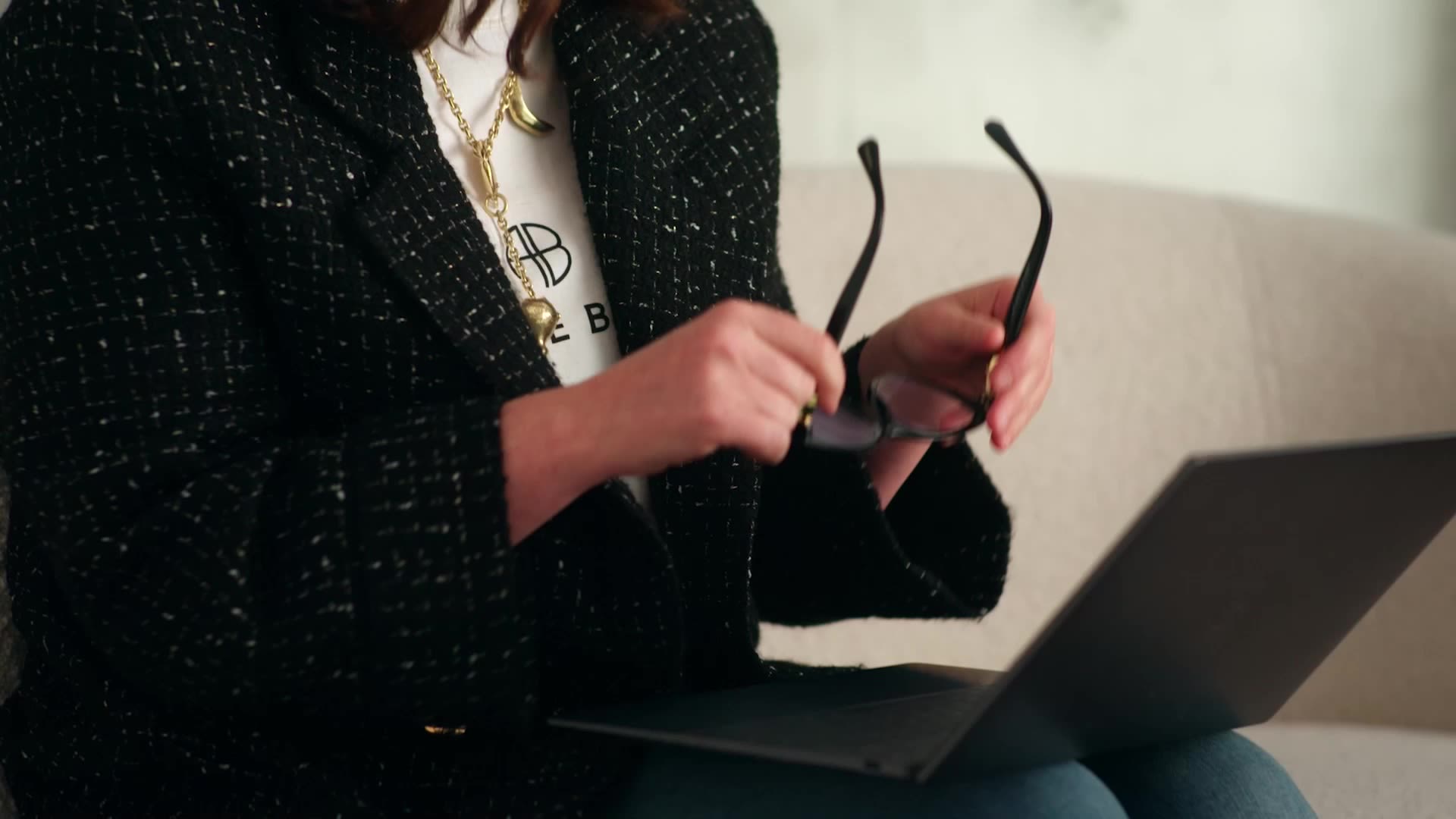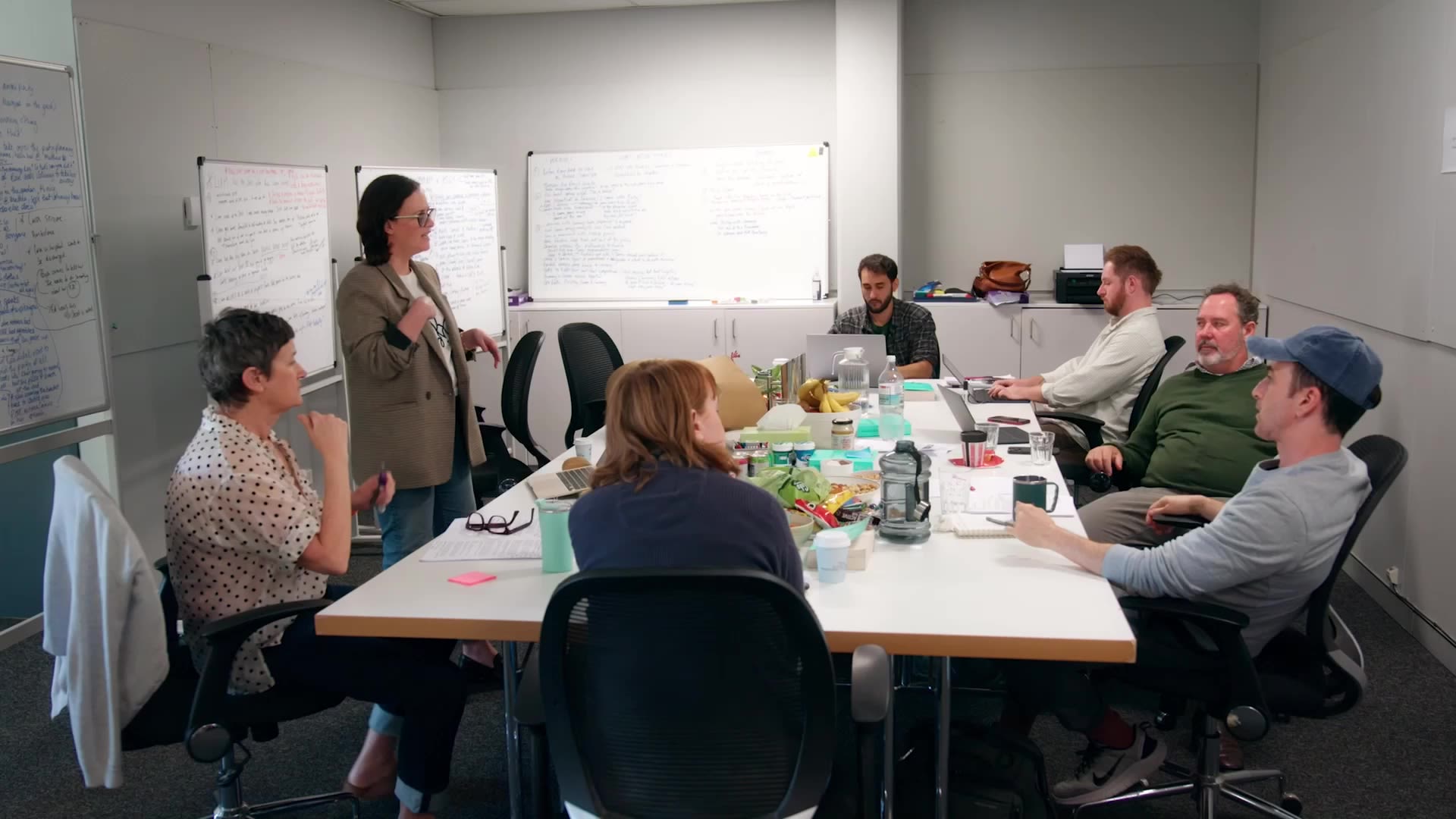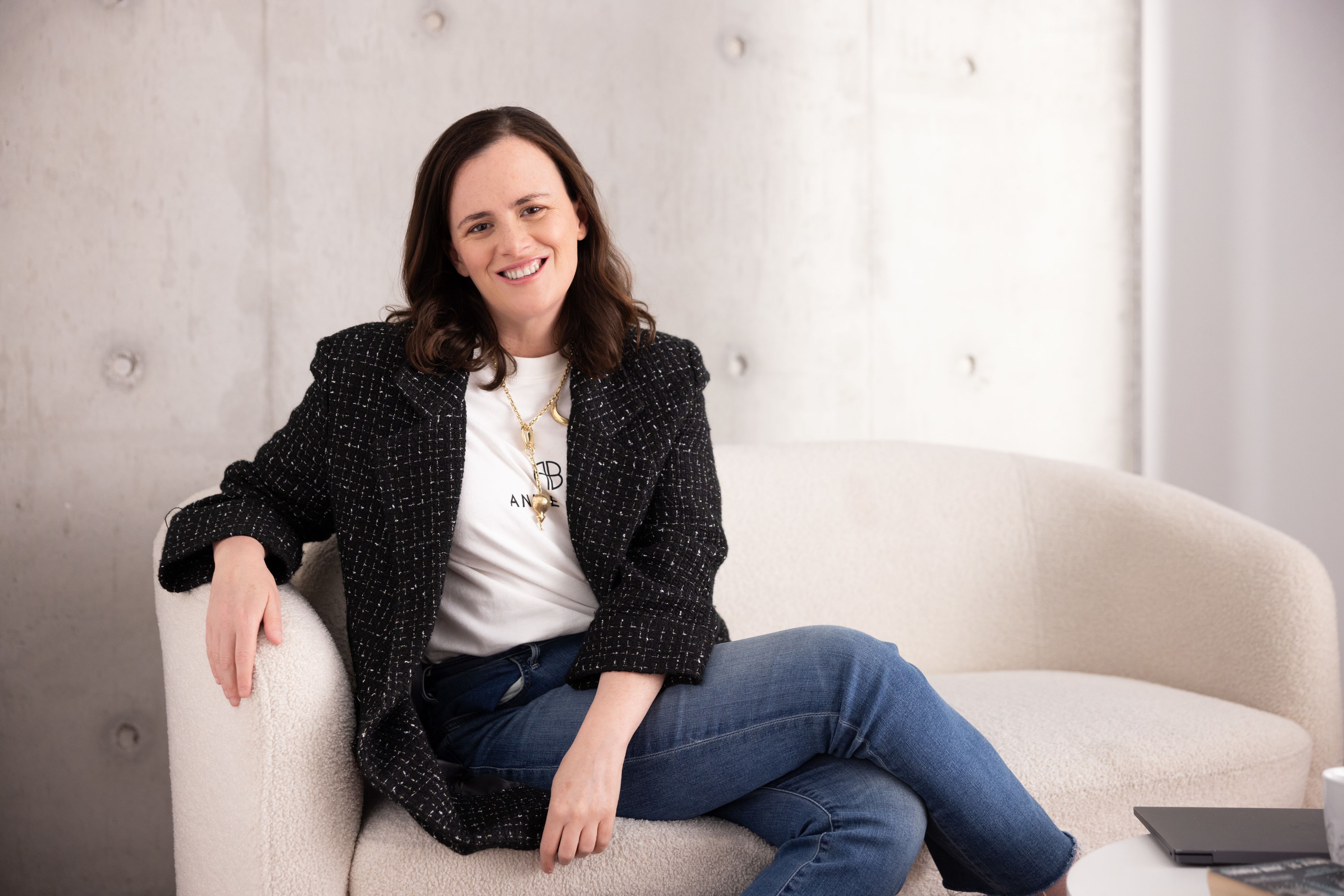
Turning pointe
SAMANTHA STRAUSS IS WRITING A NEW NARRATIVE FOR AUSTRALIAN TELEVISION
By Fiona Self

Samantha Strauss dreamed of becoming a professional ballerina. But when she broke her back at 18, she had to pivot. Samantha enrolled at Bond ‘on a whim’, signalling the start of a journey that led her to become one of Australia’s most sought-after screenwriters whose latest project is Netflix’s Apple Cider Vinegar.
Samantha is a multi-award-winning writer known for creating characters with complexity, depth and nuance, but she didn’t consider herself a strong writer until, while studying a Bachelor of Film and Television at Bond, she received a piece of feedback from a guest lecturer — actor, director and The Comedy Company writer Ian McFadyen.
“You’ve got talent, you know. You should keep doing this,” he told Samantha after reading her script. Ian’s words of encouragement came at just the right time.
The first film Samantha wrote at Bond was set at a dance school, and went on to become Dance Academy, an Australian teen drama that still screens in 160 countries.
Creating complex characters
From the first draft of Dance Academy, Samantha has always been committed to socially impactful stories. She strives to give voice to a diverse range of people. Women are front and centre.
Samantha is a multi-award-winning writer known for creating characters with complexity, depth and nuance, but she didn’t consider herself a strong writer until, while studying a Bachelor of Film and Television at Bond, she received a piece of feedback from a guest lecturer — actor, director and The Comedy Company writer Ian McFadyen.
“You’ve got talent, you know. You should keep doing this,” he told Samantha after reading her script. Ian’s words of encouragement came at just the right time.
The first film Samantha wrote at Bond was set at a dance school, and went on to become Dance Academy, an Australian teen drama that still screens in 160 countries.
Creating complex characters
From the first draft of Dance Academy, Samantha has always been committed to socially impactful stories. She strives to give voice to a diverse range of people. Women are front and centre.
“For me, the power of writing is digging under the skin,” she says. “It’s about investigating stories that haven’t had their time in the sunshine, letting the sunlight in and finding hope through those conversations.”
“For me, the power of writing is digging under the skin,” she says. “It’s about investigating stories that haven’t had their time in the sunshine, letting the sunlight in and finding hope through those conversations.”


This metaphor inspired the name of Samantha’s production company, Picking Scabs.
Among her more recent work, The End explores issues of voluntary assisted dying, ageing and suicide. In a fitting full circle moment, it also stars Ian McFadyen. Her upcoming Netflix series Apple Cider Vinegar is based on the rise and fall of infamous con-artist Belle Gibson, navigating the intersection between wellness and western medicine.
“I’m really interested in the grey and the complexity of the conversations you can have through storytelling,” Samantha says. “Storytelling is a way to bring people together, and we can find more commonality and empathy by standing in the shoes of somebody else and their story.”
Writing a new narrative
Samantha is part of a cohort of Australian women carving their reputation in the international film industry. As her career has taken off, she has chosen to focus her efforts on Australian projects and is among the growing number of filmmakers advocating for the introduction of local content requirements for major streaming platforms like Netflix and Disney+.
There are no local content quotas currently imposed on streaming services, unlike commercial free-to-air television where licensees must broadcast a minimum 55 per cent Australian-produced content between 6am and midnight on their primary channel.
The Australian screen industry, led by Screen Producers Australia, has lobbied for a 20 per cent quota, requiring streaming heavyweights to invest a portion of their revenue into Australian content.
A local content quota was set to be introduced by the federal government in July, but plans were delayed, and it’s expected that no policy will be introduced before the 2025 federal election.
“The Australian film industry is full of incredible creatives,” Samantha says.
“We need quotas to come in for the streamers so we can keep telling Australian stories. We can’t just be an outpost for international shows, otherwise we lose this enormous part of our culture. We can’t let big juggernaut tech companies take that away from us.”
While the Australian film industry continues to push for policy change, Samantha was heartened by the outcome of the 2023 writer’s strike in the United States. The Writers Guild of America – a collection of 11,500 screenwriters – went on a 148-day strike, resulting in an agreement that established AI protections for writers, including a regulation that AI technologies cannot be used as ‘writers’ to produce scripts or screenplays.
“Robots or computers can’t create the first draft of a story,” Samantha explains.
“I’m so relieved and impressed that they fought for that. We’re already in danger of being too formulaic, we’ve seen the golden age of television pass and the idea of AI reducing our stories to a template is really frightening and chilling to me.
“I think it makes us less human if we outsource that essential part of storytelling.”

The next chapter
Samantha is clear on the contribution she wants to make through her work. With a young family, it’s important to her that the projects she chooses to take on have an impact.
“The only way I can justify how hard I have to work, how long it takes, is if I think that there’s a bigger conversation to be had and that there’s a point to all of it,” she says.
As she looks to the future, Samantha hopes to help other creatives share their stories and continue to increase the diversity and richness of the narratives we see on screen.
“I’m a white woman approaching a certain point in my life, and there are so many other voices out there that need their time to shine,” she says.
“I’m looking at projects right now with creators with an interesting vision that’s different to mine, but not so different that I wouldn’t know how to help. If I can be helpful there, that would be incredibly rewarding and important to help someone else’s vision come to life.”
Published on 27 November, 2024
Original thinking direct to your inbox

Stories from Bond